#kabeiro
Explore tagged Tumblr posts
Text

#greek mythology#ancient greek mythology#greek pantheon#greek mythology memes#Aphrodite#Aglaia#Cabeiro#Kabeiro#Aetna#Etna#hephaestus x aglaia#hephaestus x aphrodite#hephaestus#hephaistos
63 notes
·
View notes
Text
youtube
1 note
·
View note
Text
Aphrodite and Hephaistos
I've made a few posts about Lady Aphrodite and Her many lovers, but have never talked about Her husband Himself, Lord Hephaistos!
Hephaistos (Hephaestus, Ἡφαιστος)
Hephaistos is the god of fire, smiths, craftsmen, metalworking, stonemasonry, and sculpture. He is also associated with disability, as He Himself is disabled. He was either the son of Queen Hera and King Zeus or Queen Hera by Herself.
Hephaistos and Aphrodite never had children together, though Hephaistos may have had children with Aglaea, Kabeiro, Aitna, Gaea, and Antiklea.
Aphrodite and Hephaistos in the Myths
*Just so y'all know, when talking about the Gods in Their myths, I am less formal when talking about Them, so that's why pronouns aren't capitalized and names aren't preceded by Lord, Lady, King, or Queen.
Marriage
Angry that his mother Hera had thrown him off of Olympus, Hephaistos sent gifts to the Olympians. One gift was a golden throne for Hera, which trapped her when she sat on it. Zeus declared that anyone who could free his wife would earn Aphrodite's hand in marriage (she agreed to this, believing that her lover Ares would succeed). Being notified of this declaration by Dionysos, Hephaistos returned to Olympus and freed his mother. This led to Aphrodite and Hephaistos getting married.
Hephaistos Catching Aphrodite and Ares in a Net
Helios saw Aphrodite and Ares together and told Hephaistos, who immediately began plotting revenge. He created an unbreakable net and placed it over a bed before leaving to visit Lemnos. Ares and Aphrodite were soon caught in the net and trapped. Hephaistos then invited the other gods to see Ares and Aphrodite trapped.
Divorce?
Some sources say that Aphrodite and Hephaistos continued to be married despite Aphrodite's many other lovers, while some say that the two divorced and Hephaistos remarried the Kharite Aglaea, and the two had four children; Eukleia, Euthenia, Eupheme, and Philophrosyne.
In My Personal Experience
*This section is entirely UPG, you may not share the same experiences or have completely different ones, this is just how they are for me, personally.
I personally believe that not only are Lady Aphrodite and Lord Hephaistos still married, They love each other greatly. Lady Aphrodite is polyamorous, as She is Love, She loves many, so She can love Her husband and love Ares and Adonis and Hermes and all of Her other lovers without love being taken away from any of them. You can't run out of love. Lord Hephaistos can similarly love Lady Aphrodite and Lady Aglaea and His other lovers.
I don't worship Lord Hephaistos often, though I would like to, so most of my experiences with/about Him have more to do with Lady Aphrodite. In readings with Lady Aphrodite just talking about nothing in particular, I have gotten things about Her talking about Lord Hephaistos and how much She loves Him. I have also felt his presence while I've been talking to Lady Aphrodite. The two really feel like an old married couple (which they are), and it's so sweet.
#beautyofaphrodite shrine#helpol#aphrodite#hellenic community#hellenic deities#hellenic gods#hellenic pagan#hellenic polytheism#hellenic polythiest#hellenic worship#aphrodite goddess#aphrodite deity#aphrodite worship#aphrodite art#lady aphrodite#aphrodite altar#aphrodite devotee#aphrodite devotion#aphrodite and hephaestus#hephaestus#hephaistos#hephaestus god#hellenic paganism#hellenism#hephaestus deity#hephaestus worship#pagan#paganism#paganblr#hephaistos god
64 notes
·
View notes
Text

A mystic scene. The deity Kabeiros, worshiped (normally as part of a group, the Kabeiroi) on the Aegean island of Samothrace, is shown identified with Dionysos in his chthonic aspect. He reclines as at a symposium; in his left hand is an egg, suggesting rebirth, while his right hand holds a kantharos (two-handled drinking cup), from which a snake drinks. The snake itself is a common chthonic symbol: its ability to shed its skin was often understood as symbolic of the "death" and rebirth of initiates into mystery cults. Side A of a red-figure krater by the Mystai Painter, late 5th century BCE. From Boeotia; now in the National Archaeological Museum, Athens. Photo credit: Zde/Wikimedia Commons.
#classics#tagamemnon#Ancient Greece#Classical Greece#classical mythology#Greek mythology#Greek religion#Ancient Greek religion#Hellenic polytheism#Kabeiroi#Dionysus#Dionysos#art#art history#ancient art#Greek art#Ancient Greek art#Classical Greek art#vase painting#red-figure#krater#Mystai Painter#NAM Athens
360 notes
·
View notes
Note
Hephaestus gets with Aglaia, or the Sea Nymph, Kabeiro. Having many daughters with the first, and sons with the other.
I'd love to see you draw either one, especially with Hephaestus ;)
I don't have a plan to design any of them at the moment, sorry 😔
14 notes
·
View notes
Note
Hiii cwan wou mwake us a dog boy withhhhh LOTSSS of genders :3 we would lwove if he could help us slweep too >~<
🐶⋆。 💤 ₊˚ 🍱˚. SINGLE, MERCHANT’S CHOICE = SLEEPY PUPPY BOY – ALTER PACK
Idk what to put here 🐶👍🏻

Names – Riyuko „ Harutoki „ Adonis „ Arox „ Haruko „ Kabeiro
Nicknames – Riyu „ Haru „ Toki „ Kabe
Age – ageless / immortal
Pronouns – he / him „ it / it’s „ zi / zir „ xe / xem „ woof / woof’s „ paw / paw’s „ dream / dream’s „ fluffy / fluffy
Gender – transboy ( top surgery only ) „ genderflux „ sleepylix „ pupgender „ sleepyfluffybatic „ liminalgender „ dreamcoric „ weirdcoric „ backroomic
Terms – masc „ thing „ pup
Orientation – achillean „ gay „ polyamorous
Personality – sleepy „ hyper „ foodie „ silly „ weird „ introverted „ calm
Role – drowser „ consummate
Species – puppy – bat – Backrooms creature
Source – original
Emojis – 🐶 „ 🍱 „ 💤 „ 🦇 „ 🧸 „ 🦴
Front triggers – Mouthwashing „ Minecraft „ his partners „ liminal spaces / The Backrooms „ having to sleep „ having to eat
Memories – wandering around The Backrooms / liminal spaces and making homes / bases in them . Interacting with Backrooms creatures .
Extra – loves writing fics „ especially for jimcurly alongside psychoanalyzing them . Most of the time his jimcurly fics are actually just horny posts . Also „ Japanese Korean!!!!!
Example message – hiii!!!!! I'm Riyuko and I use he/it/zi/xe/woof/paw/dream/fluffy!!! I help w sleeping n eating!!!!! I <3 liminal spaces n the backrooms cuz I grew up there!!!! Am a bat puppy!!!!!!! :3
Likes – eating „ sleeping „ The Backrooms „ his partners „ anthropology / observing human behavior
Dislikes – jealousy „ cats „ salty food „ being misgendered „ neglecting the body
Faceclaims –




5 notes
·
View notes
Text
Coin of the Day #141 (9/22/2024)
Ooo, uh, you nearly missed it there…


Roman Province - Macedonia
AE26 - 11.91g
Gordian III 238-241 AD
Thessalonica Mint
Obverse AY K M ANT ΓOPΔIANOC
Bust of Gordian III right, laureate, draped, cuirassed, from behind
Reverse ΘECCAΛONIKEΩN
Nike advancing left, holding Kabeiros and palm
RPC VII 345
#coin of the day#roman empire#roman province#ancient rome#gordian iii#thessalonica#macedonia#roman coins#coin#coins#numismatics#ancient coins
2 notes
·
View notes
Text

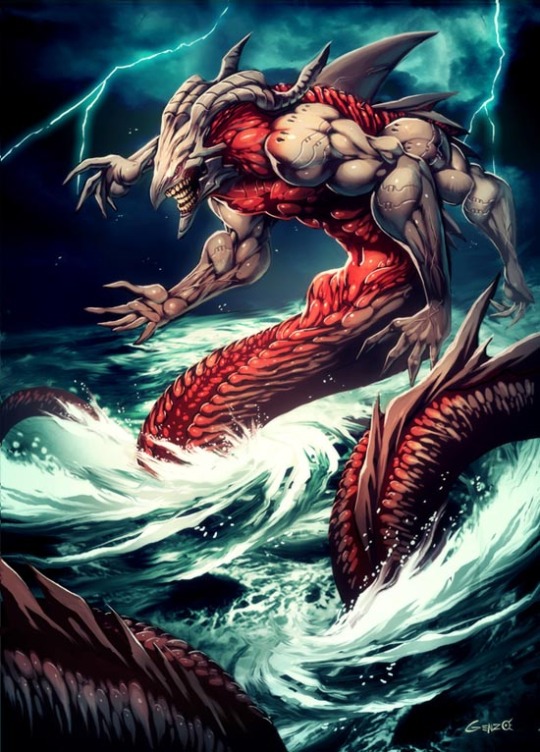
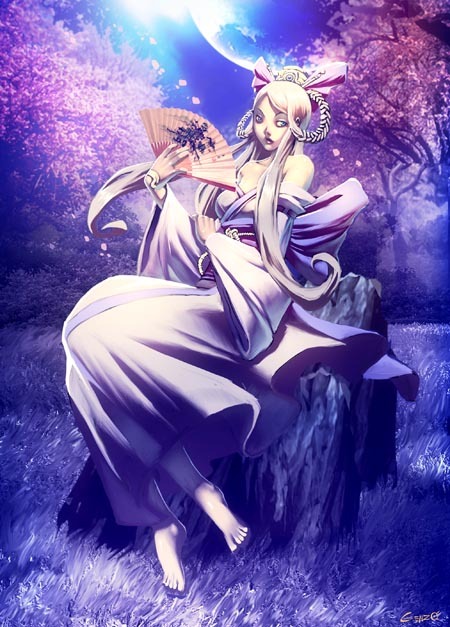

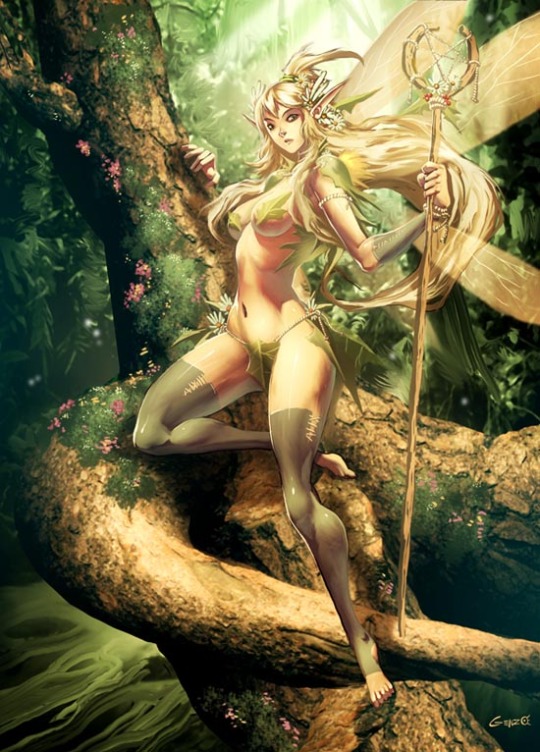



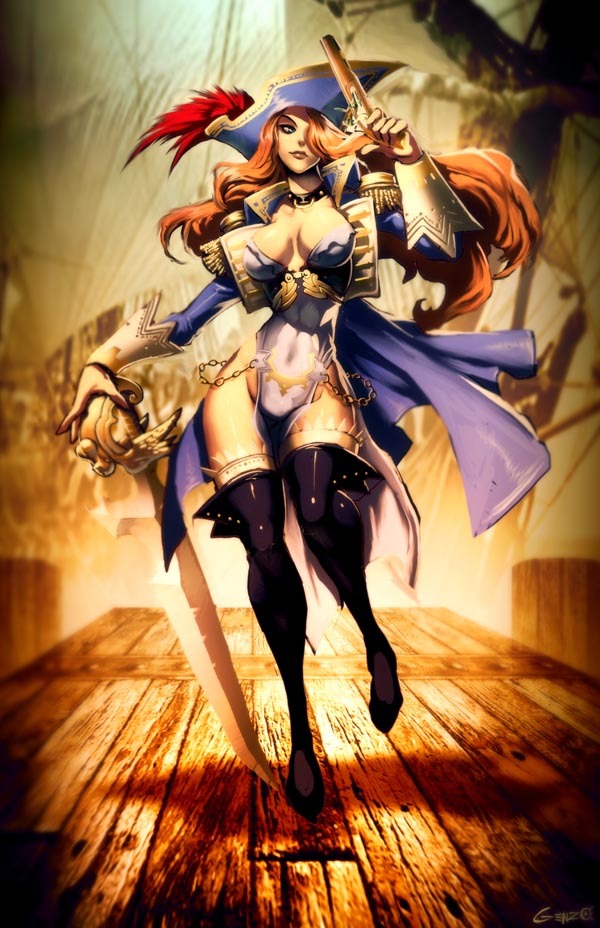










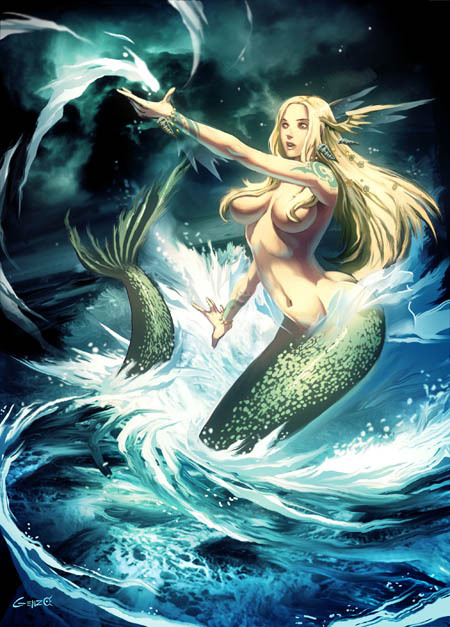


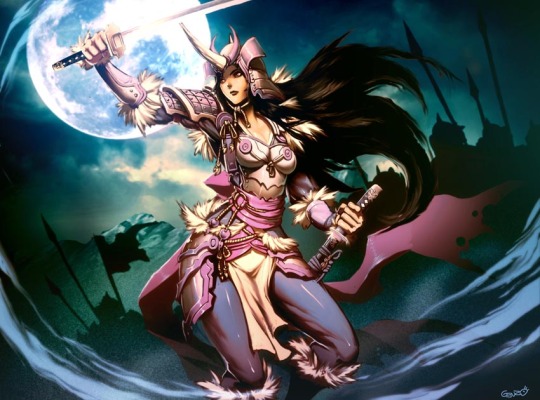
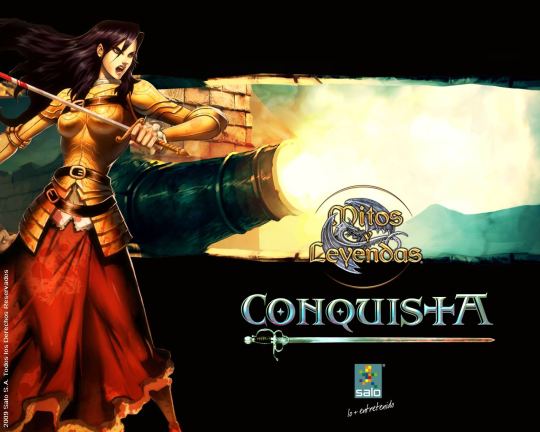






© Genzoman
1-. War gods. Dragon Slayer
2-. Forneus
3-. Yakami Hime
4-. Grace O'Malley
5-. Happy Earth Day
6-. Haquika
7-. Jane D'Arc Blessing the sword
8-. kabeiro
9-. Lady Mary Killigrew
10-. LeDragon and his son Pablo
11-. Lilith
12-. Marowit
13-. Merrow
14-. Nike, goddess of victory
15-. Oriflama
16-. Playing whit the Devil
17-. Ra
18-. ride whit the sun
19-. Scylla
20-. Siren
21-. The Pythia
22-. Toyotama hime
23-. Unicorn Battle Maiden
1 note
·
View note
Photo

Many thanks to @pandacapuccino for this absolutely stunning picture of Hephaistos and Kabeiro she did for me! Check her out, she’s fantastic! Worthy of Love by M.M. Kin is available for reading on Amazon, Barnes and Noble, Smashwords, and Kobo if you want to read the love story of Hephaistos and Kabeiro :)
15 notes
·
View notes
Text
“Hephaestus is asexual”
“Hephaestus is Aromantic”
“Hephaestus is touch deprived”
“Hephaestus is sexually inexperienced and reads romance novels to understand sex”
Does this look like a guy who is any of these things?

#greek mythology#ancient greek mythology#greek pantheon#hephaestus#hephaistos#Aglaia#Aphrodite#kabeiro#aetna
33 notes
·
View notes
Text
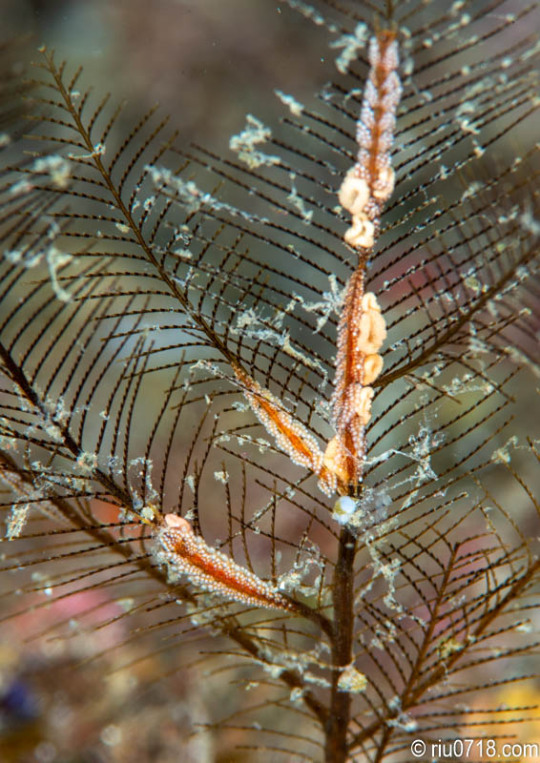
ミレニアムマツカサウミウシ Kabeiro sp.
61 notes
·
View notes
Text
Olympian Deities: Hephaestus
This is a brief overview of Hephaestus
Realm: God of fire, smiths, craftsmen, metalworking, stonemasonry, and sculpture
Parents: Hera (no father)
Offspring:
By Kabeiro: The Kabeiroi, The Kabeirides, Kadmilos
By Aglaia: Eukleia, Euthenia, Eupheme, Philophrosyne
By Aitna: The Palikoi
By Uknown: Thaleia
Symbols: Hammer, tongs, crescent-moon axe, cane
Colors: Red, black, bronze, grey
Offerings: Greek and Italian wine, pure water, coffee, olive oil, metals, frankincense, learn new things, support local artists, things you've built, do self-care in his honor, dedicate calming activities to him
Sacred Animals: Crabs, snakes, donkeys, guard dogs, cranes
Sacred Plants: Fennel
Element: Fire
Metal/Stones: Bronze, steel, clay,
Number: 9
Planet: The Sun in antiquity? In modern astrology, Hephaistos 2212 (a minor planet)
Time: Chalceia
Tarot Cards: The Devil, Strength
Altar Ideas: Smith's tools, snake imagery, mermaid imagery, seashells, imagery of donkeys, woodwork, pottery, nails, screws, jewelry, anything associated with Achilles, things you've built, fruits of self-care, fire, anything fire-related
Epithets:
Clytus: Renowned, famed, glorious
Periclytus: Very famous, glorious
Agaclytus: Very famous, glorious
Clytometis: Famed for skill, crafts
Clytotechnes: Famed worker, for crafts
Polytechnes: Of many crafts
Polyphron: Ingenious, inventive
Polymetis: Resourceful, of many crafts
Aethalois Theus: Sooty God
Chalceus: Bronze-, Copper-smith
Cyllopodium: Crooked-foot, dragging feet
Amphigyeis: Lame one, halting in both feet
3 notes
·
View notes
Text
Day 5 0f 30 Days of Apollon
Members of the family – genealogical connections
Apollon is a twin, he has an older twin sister Artemis. His mother is Leto a Titaness, a goddess of motherhood and his father is the king of the Gods Zeus.
Although his stepmother Hera according to myth sent monsters after his mother Leto while she was pregnant with the twins so she will never find shelter, once the twins are born and declared Olympians she doesn’t seem to have a problem with them.
Obviously, there is a difference between myth and cultus (what people actually thought of the gods through religious experience) so this may not have happened
He had a great relationship with his brother Hermes who win Apollon over with his gall as an infant.
Through his father Zeus he has many other siblings, some that are also Olympians these are:
Divine Siblings of Apollon
AGDISTIS A Hermaphroditic God born when Zeus accidentally impregnated Gaia the Earth. Fearful of this strange creature the gods castrated it, and it became the goddess Kybele. [Agdistis and Kybele and their parents were Phrygian gods later identified with Greek counterparts].
AIGIPAN (Aegipan) A rustic god, son of Zeus and Aix or Boetis (the wife of Pan).
ALATHEIA The goddess of truth was a daughter of Zeus.
APHRODITE The goddess of love was, according to some, a daughter of Zeus and the Titaness Dione (most accounts, however, say she was born in the sea from the severed genitals of Ouranos).
ARES The god of war was a son of Zeus and his wife Hera.
ARTEMIS The goddess of hunting and Protectress of Young Girls was a daughter of Zeus and the Titaness Leto.
ASOPOS (Asopus) The god of the river Asopos in Argos (Southern Greece) was, according to some, the son of Zeus and Eurynome (most accounts, however, call him a son of Okeanos and Tethys).
ATE The goddess of blind folly and ruin was, according to some, a daughter of Zeus (others say she was born fatherless to Eris).
ATHENE (Athena) The goddess of warcraft, wisdom and craft was sprung directly from the head of Zeus. Her mother was the Titaness Metis whom Zeus had swallowed whole in pregnancy.
BRITOMARTIS The goddess of hunting and fishing nets was a daughter of Zeus and the Nymphe Karme.
DIKE The goddess of justice, one of the three Horai, was a daughter of Zeus and the Titaness Themis.
DIONYSOS (Dionysus) The god of wine and debauchery was a son of Zeus and Semele (or in a few unorthodox accounts, of Zeus and Demeter or Dione).
EILEITHYIA The goddess of childbirth was a daughter of Zeus and Hera.
EIRENE (Irene) The goddess of peace, one of the three Horai, was a daughter of Zeus and the Titaness Themis.
ERIS The goddess of strife and warfare was, according to some, a daughter of Zeus and Hera (most, however, say she was a daughter of Nyx).
ERSA The goddess of the dew was a daughter of Zeus and the Titaness Selene.
EUNOMIA The goddess of good governance, one of the three Horai, was a daughter of Zeus and the Titaness Themis.
HARMONIA The goddess of harmony was, according to one author, a daughter of Zeus and the Pleiad Elektra (the usual account makes her a daughter of Ares and Aphrodite who was only fostered by the Pleiad).
HEBE The goddess of youth was a daughter of Zeus and Hera.
HEPHAISTOS (Hephaestus) The god of smiths was, according to some, a son of Zeus and Hera (though many say Hera conceived him without the assistance of Zeus).
HERMES The god of merchants, shepherds and messengers was a son of Zeus and the Pleiad Maia.
HORAI (Horae) The three goddesses of the seasons--Dike, Eirene, and Eunomia--were daughters of Zeus and the Titaness Themis.
KABEIROI (Cabeiri) The gods of the Mysteries of Samothrake were, according to some, sons of Zeus and the Mousa Kalliope (most, however, call them sons of Hephaistos and Kabeiro).
KAIROS (Caerus) The god of opportunity was the youngest divine son of Zeus.
KENTAUROI KYRPIOI (Cyprian Centaurs) A tribe of Kentauroi (Centaurs) native to the island of Kypros (eastern Mediterranean). They sprang from Gaia the Earth when Zeus accidentally impregnated his failed attempt to make love to Aphrodite.
KHARITES (Charites) The three goddesses of grace, beauty and mirth--named Aglaia, Euphrosyne and Thaleia--were daughters of Zeus and the Titaness Eurynome.
KORYBANTES SAMOTHRAKIOI (Samothracian Corybantes) The orgiastic demigods of the Samothrakian Mysteries were sometimes described as sons of Zeus and the Mousa Kalliope.
LITAI (Litae) The elderly goddesses of prayer were daughters of Zeus.
MELINOE A fearsome goddess of the underworld, whose body was half black and half white. She as a daughter of Zeus and Persephone.
MOIRAI (Moirae) The three goddesses of fate and destiny--Atropos, Lakhesis and Klotho--were, according to some, daughters of Zeus and the Titaness Themis (others say they were daughters of Nyx, Ananke or Khaos).
MOUSAI (Muses) The nine goddesses of music and song--named Kalliope, Terpsikhore, Kleio, Euterpe, Ourania, Thaleia, Polyhymnia, Melpomene, Erato--were daughters of Zeus and the Titaness Mnemosyne.
NEMEA A minor goddess-nymph, daughter of Zeus and the Titaness Selene.
NYMPHAI (Nymphs) Nymphs in general were sometimes called the daughters of Zeus.
NYMPHAI THEMEIDES Three goddess-nymph daughters of Zeus and the Titaness Themis.
PALIKOI (Palici) Twin gods of the geysers of Palikoi in Sicily (southern Italy). They were, according to some, the sons of Zeus and Thaleia (but others say they were sons of Hephaistos and Aitna).
PAN The god of shepherds was, according to one author, the son of Zeus and Hybris (but others invariably call him a son of Hermes).
PANDEIA A minor goddess-nymph, daughter of Zeus and the Titaness Selene.
PERSEPHONE The goddess of the underworld and spring renewal was a daughter of Zeus and Demeter (or, according to one account, of Zeus and Styx).
PHASIS The gd of the river Phasis of Kolkhis (eastern Black Sea) was, according to some, a son of Zeus (other say he was a son of Okeanos and Tethys like the other Rivers).
ZAGREUS A divine son of Zeus and his own daughter Persephone. He was slain by the Titanes, but Zeus recovered the child's heart and fed it to Semele and Zagreos was reborn as the god Dionysos.
Mortal Siblings of Apollon
AIAKOS (Aeacus) A king of the island of Aigina (southern Greece). He as the son of Zeus and the Nymphe Aigina.
AITHLIOS (Aethlius) The first king of Elis (southern Greece), son of Zeus and either Protogeneia or Kalyke.
AKHEILOS (Acheilus) A Lydian boy (Asia Minor), son of Zeus and Lamia, who contested with the goddess Aphrodite in beauty.
ALEXANDROS (Alexander the Great) An historical king of Makedonia (northern Greece) and later Conqueror of much of the known world. He was, according to legend, a son of Zeus born to the Makedonian Queen Olympia. [This is a unique example of an historical personage bestowed with mythic origins].
AMPHION A king of Thebes in Boiotia (central Greece). He was a twin son of Zeus and Antiope.
ARGOS (Argus) The eponymous first king of Argos (southern Greece). He was a son of Zeus and Niobe.
ARKAS (Arcas) The eponymous king of Arkadia (southern Greece), son of Zeus and Kallisto.
ARKEISIOS (Arceisius) A king of the islands of Ithaka and Kephallenia (central Greece). He was a son of Zeus, or according to others, of Kephalos and Prokris.
ATYMNIOS (Atymnius) A lord of the island of Krete (Greek Aegean). He was a son of Zeus and Kassiopeia.
DARDANOS (Dardanus) The first king of the Troad (Asia Minor). He was a son of Zeus and Elektra, born on the island of Samothrake.
DIOSKOUROI (Dioscuri) Twin princes of the Spartan kingdom of Lakedaimonia (southern Greece) who were hatched from an egg laid by Queen Leda. One of the pair, Polydeukes, was fathered by Zeus, but the other, Kastor, was the son of Leda's husband Tyndareus.
EMATHION A king of the island of Samothrake (Greek Aegean). He was a son of Zeus and Elektra.
ENDYMION A king of Elis (southern Greece). He was the son of Kalyke, either by Zeus or her husband Aithlios.
EPAPHOS (Epaphus) A king of Egypt (North Africa), son of Zeus and the much-suffering Io.
GRAIKOS (Graecus) The eponymous first king of the Graikoi tribe of the Pindos Mountains (northern Greece). He was a son of Zeus and Thyia.
HELENE (Helen) A queen of Sparta (southern Greece), wife of Menelaus, who eloped to Troy with her lover Paris. She was a daughter of Zeus by Leda or the goddess Nemesis.
HELLEN A king of northern and central Greece and eponym of the Hellenes (i.e. the Greeks). He was, according to some, a son of Zeus and Pyrrha (though others say his father was Pyrrha's husband Deukalion).
HERAKLES (1) (Heracles) The greatest of the Greek heroes. He was born in the Boiotian city of Thebes (central Greece) to Alkmene who was seduced by Zeus in the form of her own husband.
HERAKLES (2) (Heracles) A son of Zeus and Lysithoe. According to some, he was a hero who was confused with the younger Herakles (1).
HEROPHILE A Sibylla prophetess of Libya (North Africa) and later of the oracle of Delphoi in Phokis (central Greece). She was a daughter of Zeus and the Libyan queen Lamia.
IARBAS A king of the Moors (North Africa). He was a son of Zeus and an African Nymphe.
IASION A prince of the Island of Samothrake (Greek Aegean) and Chief-Priest of the Samothrakian Mysteries. He was a son of Zeus and Elektra.
KEROESSA (Ceroessa) A nymph or princess of Byzantium--on the Bosporos Strait separating Europe and Asia. She was a daughter of Zeus and Io, and mother of Byzas, the eponymous founder of the celebrated city.
KOLAXES (Colaxes) A lord of the Tauric Khersonese (north-eastern Europe), son of Zeus and the Nymphe Hora.
KORINTHOS (Corinthus) The eponymous king of Korinthos (southern Greece). He was a son of Zeus (or, according to others, of Epopeus).
KRINAKOS (Crinacus) A king of Olenos, Akhaia (southern Greece). He was a son of Zeus.
KRONIOS (Cronius) A lord of the island of Rhodes (Greek Aegean), one of three sons borne to Zeus and the Nymphe Himalia.
KYTOS (Cytus) A lord of the island of Rhodes (Greek Aegean), one of three sons borne to Zeus and the Nymphe Himalia.
LAKEDAIMON (Lacedaemon) The first eponymous king of the Spartan kingdom of Lakedaimonia (southern Greece). He was a son of Zeus and the Pleiad Taygete.
LATINOS (Latinus) The first eponymous king of Latium (central Italy), son of Zeus and Pandora.
MAGNES The first eponymous king of Magnesia in Thessalia (northern Greece). He was a son of Zeus and Thyia (or, according to others, of Aiolos and Enarete).
MAKEDON (Macedon) The first eponymous king of Makedonia (northern Greece). He was a son of Zeus and Thyia.
MANES The first king of Lydia (Asia Minor), a son of Zeus and Gaia.
MEGAROS (Megarus) The first eponymous king of Megara (southern Greece), son of Zeus and a Sithnid Nymphe.
MELITEUS The founding prince of the town of Melite in Phthiotis (northern Greece). He was a son of Zeus and Othris.
MINOS A king of the island of Krete (Greek Aegean). He was a son of Zeus and Europa.
MYRMIDON A king of Phthiotis in Thessalia (northern Greece) and Epynom of the Myrmidones tribe. He was a son of Zeus and Eurymedousa.
ORION A giant who was born in answer to the prayers of the childless Boiotian (of central Greece) King Hyrieus. He was conceived by three gods--Zeus, Hermes and Poseidon--who urinated upon a bull's hide and buried it in the earth, to grow an earth-born infant.
PELASGOS (Pelasgus) The eponymous first king of the ancient Pelasgian tribe of Arkadia and Argos (southern Greece). He was a son of Zeus and Niobe (though others calls him a son of Poseidon and Larissa or an Autokhthon (Earth-Born).
PEIRITHOUS (Pirithous) A king of the Lapithai tribe of Thessalia (northern Greece) who, according to some, was a son of Zeus and Dia (though most authors say the father was Dia's husband King Ixion).
PERSEUS A hero and later king of Mykenai in Argolis (southern Greece). He was the son of Zeus and Danae.
POLYDEUKES (Polydeuces) A prince of Lakedaimonia (southern Greece) who with his twin-brother were known as the Dioskouroi. Polydeukes was the son of Zeus and Leda, while his twin brother was the son of Leda's husband Tyndareus.
RHADAMANTHYS A lawmaker of Krete (Greek Aegean) and later resident of Thebes in Boiotia (central Greece). Rhadamanthys was a son of Zeus and Europa.
SAON The first king of the island of Samothrake (Greek Aegean). According to some he was the son of Zeus and a local Nymphe (but others say he was a son of Hermes and Rhene).
SARPEDON 1 A king of Lykia (Asia Minor). He was a son of Zeus and Europa.
SARPEDON 2 A king of Lykia (Asia Minor) who fought in the Trojan War. He was a son of Zeus and Laodameia.
SPARTAIOS (Spartaeus) A lord of the island of Rhodes (Greek Aegean), one of three sons borne to Zeus and the Nymphe Himalia.
TANTALOS (Tantalus) An impious king of Lydia (Asia Minor), son of Zeus and the Okeanis Plouto.
TARGITAUS The first king of the Skythia (north-eastern Europe), son of Zeus and a daughter of Borysthenes.
TITYOS (Tityus) A giant of Orkhomenos (central Greece) who was, according to some, a son of Zeus and Elare (though others say he was a fatherless son of Gaia the Earth).
ZETHOS (Zethus) A king of Thebes in Boiotia (central Greece). He was the twin brother of Amphion and a son of Zeus and Antiope.
Apollon, of course, had offspring of his own both mortal and divine
Divine Offspring of Apollon
ARISTAIOS (Aristaeus) The patron god of beekeeping, olive oil manufacture, and the Etesian Winds. He was a son of Apollon and the nymph Kyrene.
ASKLEPIOS (Asclepius) The god of medicine. He was the son of Apollon and Koronis (or Arsinoe).
KHARIKLO The nymph wife of the kentauros Kheiron was a daughter of Apollon.
KORYBANTES SAMOTHRAKIAI (Samothracian Corybantes) The spear-clashing, dancing daimones of the Mysteries of Samothrake were, according to some, sons of Apollon and the nymph Rhetia or the Mousa Thaleia.
SKYLLA (Scylla) The monstrous Sicilian sea-nymph was, according to one unusual account, the daughter of Apollon and Hekate. (She was usually described as a daughter of the sea-gods Phorkys and Keto.)
Mortal Offspring of Apollon
AGREUS A lord of Dirphe on the island of Euboia (central Greece) or king of that whole island. He was the son of Apollon by the Lokrian princess Amphissa (or Euboia or Isse).
AMPHIARAUS A prince of Argos (central Greece) and seer, the son of Apollon and Queen Hypermnestra (though according to others King Oikles was the father). He was swallowed up by the earth during the war of the seven against Thebes and transformed by Apollon into an oracular daimon.
AMPHISSOS (Amphissus) A king of Dryopia (Ozolean Lokris) (central Greece), son of Apollon and Dryope.
AMPHITHEMIS or GARAMOS A king of the Garamonian tribe of Libya (in North Africa). He was a son of Apollon and the Kretan princess Akalle.
ANIOS (Anius) A king of the island of Delos (Greek Aegean), son of Apollon and the Naxian Princess Rhoio.
APIS An early king of Argos and the rest of the Peloponnese (southern Greece). He was a son of Apollon.
ASKLEPIOS (Asclepius) A physician-prince of Oikhalia in Thessalia (northern Greece). Asklepios was the son of Apollon and Koronis--though according to the Messenians he was a son of Apollon and the Messenian princess Arsinoe. After his death Asklepios was granted immortality and became god of medicine.
BRANKHOS (Branchus) The first of the priests of the oracle of Apollon at Brankhidai. He was a son of Apollon.
DELPHOS (Delphus) A eponymous founding lord of the village of Delphoi in Phokis (central Greece) and eponym of the town. He was a son of Apollon by Kelaino, Thyia or Melaina.
DOROS (Dorus) A king of the Kouretes tribe of Aitolia (central Greece). He was one of the three sons of Apollon and Phthia.
DRYOPS The eponymous king of Dryopia (central Greece). He was a son of Apollon.
ELEUTHER A bard of Boiotia (central Greece). He was the son of Apollon and Aithousa.
EPIDAUROS (Epidaurus) The eponymous founding king of Epidauros in Argolis (central Greece). He was a son of Apollon.
ERIOPIS A princess of Messenia (southern Greece). She was a daughter of Apollon and Arsinoe.
ERYMANTHOS (Erymanthus) An Arkadian (southern Greece) lord for whom Mount Erymanthos was named. He was a son of Apollon who earned Aphrodite's wrath by reporting her rendeavous with Adonis.
HILAEIRA A princess of Messenia (southern Greece) who was, according to some, a daughter of Apollon by the wife of King Leukippos (most, however, say Leukippos was the father).
IAMOS (Iamus) A seer of Arkadia and Elis (southern Greece). He was a son of Apollon and the nymph Euadne.
IDMON A seer of Argos (southern Greece) and one of the Argonauts. He was, according to some, a son of Apollon and Kyrene (most however call him a son of the Argive Abas).
ILEUS A lord of Troy (Asia Minor), son of Apollon by the nymph Ourea.
ION A prince of Athens and later king of Akhaia (southern Greece) and eponym of the Ionians. He was a son of Apollon and the Athenian princess Kreusa (though according to some, his father was Kreusa's husband Xouthos).
ISMENOS (Ismenus) An oracular priest of the shrine of Ismenios near Thebes in Boiotia (central Greece). He was a son of Apollon and the Okeanid-nymph Melia.
KENTAUROS (Centaurus) A lord of the Lapithai tribe of Thessalia (northern Greece). He was a son Apollon and Stilbe.
KEOS (Ceos) The first eponymous king of the island of Keos (Greek Aegean). He was a son of Apollon and Melia.
KHAIRON (Chaeron) The eponymous founding lord of the town of Khaironeia in Boiotia (central Greece). He was a son of Apollon and Thero.
KORONOS (Coronus) A king of Sikyonia (southern Greece). He was the son of Apollon and Khrysorthe.
KYKNOS (Cycnus) A man (presumably) of Hyria in Boiotia (central Greece), son of Apollon and Hyria. He was transformed into a swan by Apollon when he leapt off a cliff.
LAPITHES The eponymous first king of the Lapithai tribe of Thessalia (northern Greece), son Apollon and Stilbe.
LAODOKOS (Laodocus) A king of the Kouretes tribe of Aitolia (central Greece). He was one of the three sons of Apollon and Phthia.
LEUKIPPIDES (Leucippides) Two princesses of Messenia (southern Greece) named Hilaeira and Phoibe who were, according to some, daughters of Apollon by the wife of King Leukippos (most authors, however, say Leukippos was the father).
LINOS (1) (Linus) A bard of Boiotian Thebes (central Greece). Linos was the music-teacher of Herakles who was slain by the hero in a fit of rage. According to some, he was a son of Apollon by the Mousa Kalliope or by the Mousa Ourania (though in other versions, his father was not Apollon but the Pierian King Oiagros by Kalliope; and the hero Amphimaros by Ourania).
LINOS (2) (Linus) A prince of Argos (southern Greece), son of Apollon and Psamathe. As a baby he was torn apart by dogs while left unattended by his shepherd foster-parents.
LYKOMEDES (Lycomedes) A king of the island of Skyros (Greek Aegean), son of Apollon and the Samian princess Parthenope.
LYKORAS (Lycoras) The eponymous founding lord of the town of Lykoreia in Phokis (central Greece). He was a son of Apollon and the nymph Korykia.
MELANEUS A lord of Oikhalia in Thessalia (northern Greece) and skilled archer. He was a son of Apollon.
MILETOS (Miletus) A Kretan lord and founding eponymous king of the city of Miletos in Karia (Asia Minor). He was a son of Apollon and Akalle (or Aria or Deione).
MOPSOS (Mopsus) A seer of Kolophon in Lydia (Asia Minor). He was a son of Apollon by the Theban sibyl Manto (though, according to some, his father was Rhakios).
ONKIOS (Oncius) A lord of the region of Onkion in Arkadia (southern Greece). He was a son of Apollon.
ORPHEUS A bardic prince of Pieria (northern Greece) whose music possessed magical properties. According to some, he was a son of Apollon by the Mousa Kalliope (however this was contrary to the usual tradition which said he was a son of Kalliope and the Pierian King Oiagros).
PARTHENOS (Parthenius) A princess of the island of Naxos (Greek Aegean) who, according to some, was a daughter of Apollon and Khrysothemis (others say her father was Khrysothemis' husband Staphylos).
PHAGROS (Phagrus) A Malian lord (of northern Greece). He was a son of Apollon and the nymph Othreis (of Mt Othrys).
PHILAMMON A king and bard of Phokis (central Greece). He was a son of Apollon and Khione-Philonis (or Leukonoe).
PHILANDEROS (Philanderus) A lord of Elyros on the island of Krete (Greek Aegean). He was a son of Apollon and the Nymphe Akakallis.
PHOIBE (Phoebe) A princess of Messenia (southern Greece) who, according to some, was a daughter of Apollon by the wife of King Leukippos (most, however, say Leukippos was the father).
PHYLAKIDES (Phylacides) A lord of Elyros on the island of Krete (Greek Aegean). He was a son of Apollon and the nymph Akakallis.
POLYPOITES (Polypoetes) A king of the Kouretes tribe of Aitolia (central Greece). He was one of the three sons of Apollon and Phthia.
PYTHAEUS A priest of Apollon who introduced the cult of his father to the Argives and others (southern Greece).
SYROS (Syrus) The eponymous founding king of Assyria (Asia Minor). He was a son of Apollon and Sinope (the nymph eponym of the Assyrian city on the Black Sea coast).
TENEROS (Tenerus) An oracular priest of the shrine of Apollon on Mt Ptous in Boiotia (central Greece). He was a son of Apollon and the Okeanid-nymph Melia.
TENES The eponymous first king of the island of Tenedos (Greek Aegean). He was a son of Apollon and Prokleia.
TROILOS (Troilus) A prince of Troy (Asia Minor). He was, according to some, a son of Apollon and the Trojan queen Hekabe (others say his father was King Priamos).
TROPHONIOS (Trophonius) A prince of Orkhomenos (central Greece), the son of Apollon and the wife of King Erginos. He was swallowed up by the earth and transformed by his father into an oracular daimon. (Some say his father was King Erginos).
ZEUXIPPOS (Zeuxippus) A king of Sikyon (southern Greece), son of Apollon and the nymph Syllis.
Most of these, however, were only linked to him with the briefest of genealogical references. Some were assigned his parentage to emphasize their skill as bards and seers. Others were the mythic founders of historical noble houses and priestly clans.
#30 days of Apollon#dodekatheism#hellenic polytheism#hellenismos#hellenic pagan#for the love of apollo#for the love of the dodekatheon#ares is great#Hail King Zeus and Queen Hera#hermes is my god#Hades is great too#Hestia is a sweetheart#30 days of deity devotion#30 days of devotion
8 notes
·
View notes
Photo

Votive bull
Greek Late Archaic Period about 490 BCE
“The bull is inscribed on one side in Greek. Translation: ‘Homoloïchos [dedicated this] to the child of Kabeiros.’”
Museum of Fine Arts, Boston
113 notes
·
View notes
Photo

Many of my followers may wonder what fellow author MM Kin has been up to since publishing Seeds in 2013. Early this year she came back with Worthy of Love, Volume 1 of her series Interludes in Myth, and based on this new book, I am very excited to see what the rest of the Interludes will include.
Set in the same universe as Seeds (Hades and Persephone do make a cameo), Worthy of Love tells the story of Hephaistos— not as a two dimensional cuckolded prop for Aphrodite’s affair with Ares— but as a fully realized god.
The prologue tells of his origin and upbringing, and his time on Olympus. While this is where most common mythology about Hephaistos ends, MM Kin delves far further into his legends. Worthy of Love give us Hephaistos’s budding romance with the sea nymph Kabeiro, interspersed with the continuing saga of his family on Olympus. I enjoyed reading a romance that upends the traditional man-chases-woman trope, and loved seeing how Hephaistos grew and changed by the end of the story. My favorite narrative thread was from the perspective of Hera, who is written with the depth and pathos she deserves.
In whole, it is a tale about a man coming to love himself, despite hardship and disability, and about those who come to love and respect him along the way. MM Kin’s writing has matured like a fine wine in the time since she wrote Seeds, and Worthy of Love is a delicious read, and a great portent of things to come as she continues Interludes in Myth.
You can find Worthy of Love on Amazon, Createspace, and Barnes&Noble, and once you’re done reading, leave a review at Goodreads.
30 notes
·
View notes
Text
Coin of the Day #129 (9/10/2024)
A nice provincial bronze…


Roman Province - Macedonia
AE22 - 5.47g
Julia Domna 193-217 AD
Thessalonica Mint
Obverse IOYΛIA ΔOMNA CE
Bust of Julia Domna right, draped
Reverse ΘECCAΛONIKEΩN
Kabeiros standing left in distyle temple, holding rhyton and hammer
Moushmov 6747
#coin of the day#roman empire#roman province#ancient rome#julia domna#thessalonica#roman coins#coin#coins#numismatics#ancient coins
1 note
·
View note